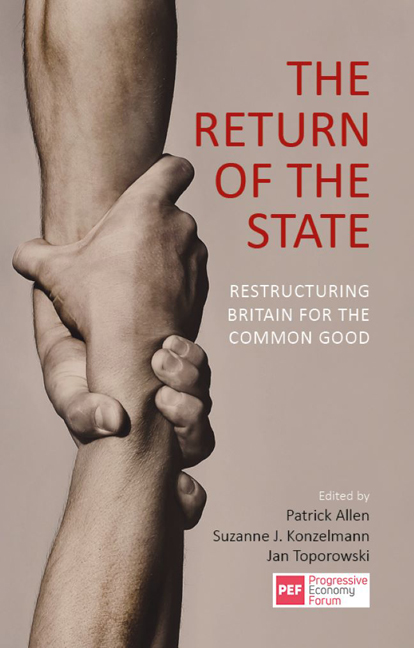16 - Reforming benefits: introducing a guaranteed income floor
Published online by Cambridge University Press: 22 December 2023
Summary
There are multiple faults with the existing system of social security, many of them exposed by the Covid-19 crisis. Millions fall through what is an imperfect, mean and patchy safety net. Benefit levels are below those in other comparable rich nations, and, for most of those of working age, less generous than in the past. The system has become heavily dependent on a complex system of means-testing, a long-term shift that is a fundamental turn from the original Beveridge/Attlee principles of universalism and collectivism. The system is not equipped to deal with today's higher levels of uncertainty and turbulence. It also fails the key test of constituting a robust defence against poverty: poverty rates are now close to record postwar levels, and heading higher.
Although Britain's benefit system for working-age adults has always come with some degree of work conditionality, these requirements are now applied with unprecedented severity. Since 2012 over 5 million sanctions have been issued, often for minor breaches such as missing or being late for a job centre interview. At one stage the Department for Work and Pensions was levying more fines than the mainstream justice system. These conditions and sanctions were suspended for a few months during the first pandemic lockdown, but they were then reinstated from July, albeit applied in what the DWP described as a “light touch” manner to take account of the impact of Covid-19.
Although a system of reciprocity – in which entitlements come with responsibilities – has been an important source of public support for collective social security, the combination of inadequate support and coercion undermines the vital principle of entitlement. What is the case for a return to sanctions in what is set to be the weakest jobs market for decades? The evidence shows that new claimants are actively seeking work, and that sanctions have largely failed to help the jobless back to work, instead pushing them deeper into poverty and ill-health.
Equally important, the principle of reciprocity is applied in a heavily one-sided way. Wealthy and poor citizens have long been treated by different standards, a built-in source of inequity that exacerbates existing divisions across society.
- Type
- Chapter
- Information
- The Return of the StateRestructuring Britain for the Common Good, pp. 189 - 198Publisher: Agenda PublishingPrint publication year: 2021



